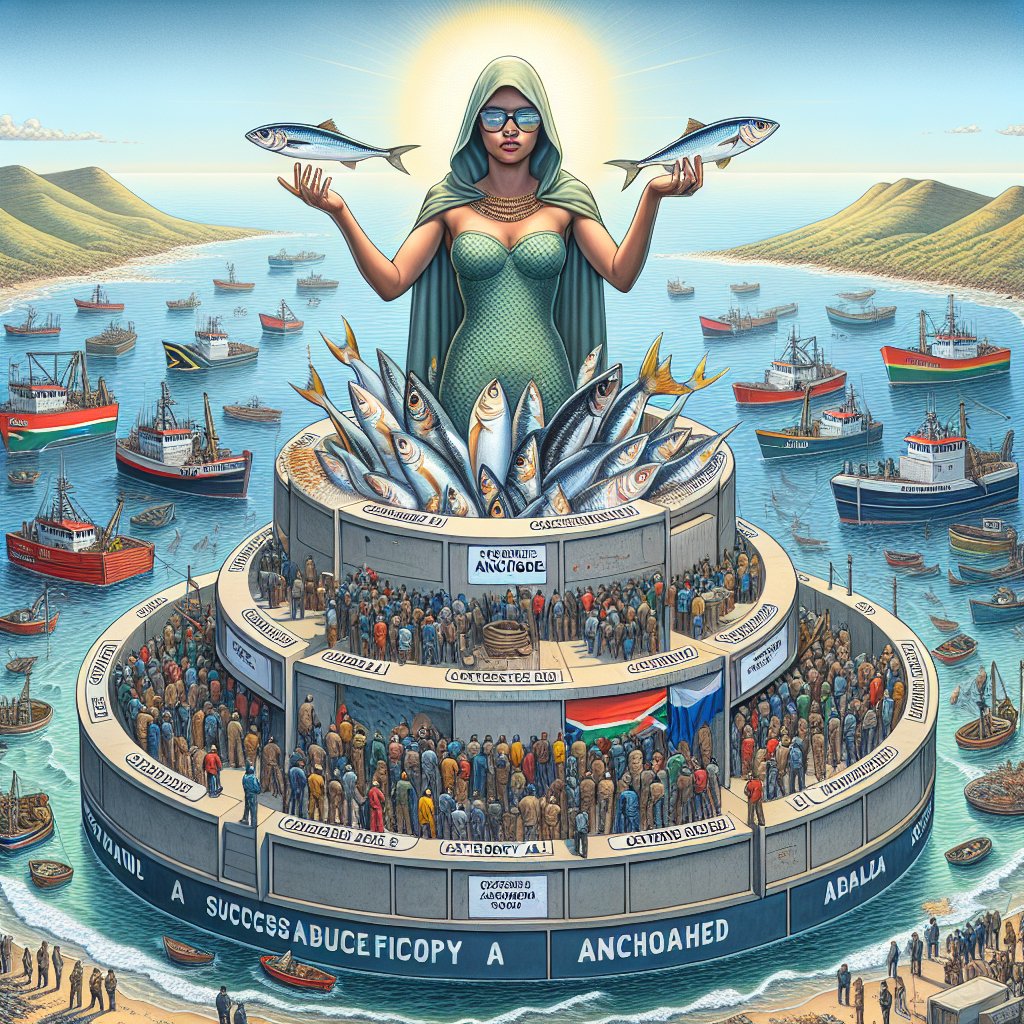Content created by AI
DFFE Completes Fishing Rights Allocation Amid Challenges in South Africa
South Africa's fisheries sector has achieved a significant milestone as the Department of Forestry, Fisheries and the Environment (DFFE) has completed its Fishing Right Allocation Process (FRAP) for the 2020/2021 cycle, ahead of the 2024 fishing season. This announcement came directly from Minister Barbara Creecy, who affirmed the department's commitment to an efficient and timely conclusion of the FRAP appeals. The process, which directly impacts the sardine and anchovy sectors, holds significant implications for the economy, environment, and the multitude of communities reliant on fishing as a means of livelihood.
The FRAP 2021/22, which took place in February 2022, was inundated with a plethora of appeals—169 from the sardine sector and 230 from the anchovy sector. These appeals were meticulously categorized into three sections—applicants who held fishing rights previously, applicants with rights in other sectors, and those without commercial fishing rights between 2006 and 2020—termed Category A, B, and C applicants, respectively.
Minister Creecy's decisions on the appeals have led to additional Category A applicants—11 for the sardine sector and 14 for the anchovy sector—qualifying for fishing rights. Additionally, one applicant from each sector in Category B also qualified. Significantly, no Category C applicants were deemed eligible on appeal, illustrating the department's focus on those with established experience in the industry.
The minister's adjudication of the appeals took into consideration the current challenges faced by the small pelagic fishery, including decreased catches that have serious economic implications. The careful balance to be struck is between the equitable distribution of resources to foster sector stability and avoiding negative repercussions, such as job losses. Minister Creecy pointed out that her decisions were underpinned by an overarching strategy to ensure sustainable development of the natural resources while maintaining the viability of the rights holders.
The conclusion of the FRAP appeals indicates the DFFE's resolve to uphold its promises to the fishing industry. More broadly, this development is poised to have a ripple effect—benefiting the nation's economy, safeguarding biodiversity, and supporting socio-economic growth. The sustainable management of fisheries is critical for South Africa, a nation endowed with rich marine biodiversity and a strong coastal community dependent on the sea's bounty.
The FRAP 2021's successful resolution of appeals sets a precedent for future allocation processes to be conducted with transparency, efficacy, and with stakeholders' interests in mind. It encapsulates South Africa's commitment to follow international best practices in the management of its fisheries and to upholding its obligations to sustainable exploitation of marine resources. Given the importance of the fishing industry to both the livelihoods of coastal communities and the national economy, the DFFE's ability to navigate the complex web of interests and challenges in this arena is commendable.
As the DFFE turns a page with the completion of this process, the vigilant eye of the nation now looks toward the 2024 fishing season—a season expected to unfold under an aura of renewed optimism for a harmoniously balanced and sustained fishing industry.










